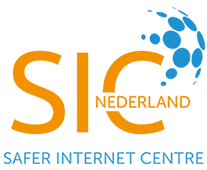Afgelopen februari reisde DigiRaadslid Auke Pals naar Berlijn voor een training die hem voorbereid op deelname aan het internationale Internet Governance Forum. Tijdens dit forum wordt door ruim 2000 professionals gepraat over de toekomst van het internet en komen onderwerpen aanbod als privacy, cyber security, transparantie en standaardisatie.

Omdat de stem van jongeren in dit belangrijke internet debat niet mag ontbreken organiseert Nederland (NL IGF) samen met een andere landen als Turkije, Duitsland en Oostenrijk een jongeren programma. Hierin worden jongeren voorbereid op hun deelname aan het internationale debat. In twee jaar doen zij actief mee in debatten op nationaal, Europees en internationaal niveau en krijgen zij verschillende trainingen.
In februari vond in Berlijn de tweede training plaats waarin ze in de wereld van policy making stapten. Raadslid Auke schreef een verslag.
“This week was all about the policy making process. Policy making process? Yes, that was also the question we asked at the beginning of this week.
We all arrived on Saturday, before dinner we all did something for ourselves. The next day, Sunday, the actual work had to start. First of all we looked at the actual terms “Policy and Politics”. What do they mean?
Policy are the actual rules, laws or legislation created. Actually policy is the outcome of politics. Politics are the proces of making policies. It looks at motivations, incentives and reasoning of decision makers. To understand the policy making proces it is important understanding politics. We looked into the EU policy making process.
Learning about the EU policy process was important because identifying a problem is only the first step. As youth our process would be more simpler but definitely not less important. Getting our voice heard in the IGF was the logical first step as youth IGF, so proposing issues as youth, having our voice heard as panelists and active participants, commenting on the outcome documents of IGF, letting the governments and private sector know our stance on certain topics and following the policy developments was the outline of our policy process. It’s a great time to start since the IGF will be calling for issues in one or two months!
Internet governance is rather expansive. There are so many stakeholders included. Because of the broadness of the internet topics can be quite diverse. Therefore we listed the topics we think have to be discussed. A few examples are: Mass surveillance, alternatives dealing with copyright, ethical issues dealing with the expansion/growth of Internet of Things.
The next day we met our fellow project member Florian in a Skype call, he could not join us in Berlin because of unforeseen illness.Later in the week we visited Philippe Gröschel, a policy advocate of Telefonica/O2 who deals mainly with government relationships and regulation. He explained how Telefonica/O2 deals with conflicts of interest.
Also that day we met during a Skype Call Lee Hibbard of the Democracy Department of the Council of Europe. That was quite inspiring for us; he addressed the complexity of internet governance and the fact that it is important to choose your niche both stakeholders as topics. During the day we grabbed lunch at a Microsoft place where all hipsters were working on their MacBooks and playing with their iPhones.
After meeting a few stakeholders it was our turn to make our own stakeholder map. We made a map showing out of our youth perspective the most important stakeholders. For example human rights activists may engage to safeguard the privacy and security of activist working under cover in a totalitarian regime. They don’t want the internet as a tool for surveillance and control, but a tool for free speech. These activists will stand up for different values than the regime they are contesting. In such a country a private telecommunication company may care mostly about profit and business models. They would fear more regulation and influence of governments. This could lead to them either agreeing with the governments attacks on the activists or them standing up for privacy and security to ensure customer loyalty.
Even when organizations are in the same stakeholder group, they can have different aims and motivations. So the freedom of speech activists clash with other civil society groups which have their focus more on child-protection or hate speech, when we discuss the question, if authorities should be allowed to delete content or restrict access to the internet.
While staying in Berlin you also have to see a little of the city of course so we took a city tour. This time not an ordinary one which visits the Brandenburger Tor, Bundestag and the TV tour. But visiting places tourist would normally never see. It was a street art tour, seeing all kids of art at the streets.
In the evening we took part in the ICANN (Internet Corporation for Assigned Names and Numbers) talk with Bill Drake on “Internet Fragmentation”. Internet Fragmentation can be any number of things that create divisions on the public internet, starting from local area networks with shared IPs to large scale state interventions to limit access to the internet or ban contents. The study presented seeks to give an overview of the different forms of fragmentation and starts a dialogue on further regulation/deregulation of the internet. More information can be found in this keynote:
The last day we met Christina Dinar from the Amadeu Antonio Foundation. She works with the foundation to combat hate speech online. Their work focuses mainly on grass roots activism and she shared stories from their campaigns and how to deal with potential community backlash.”






